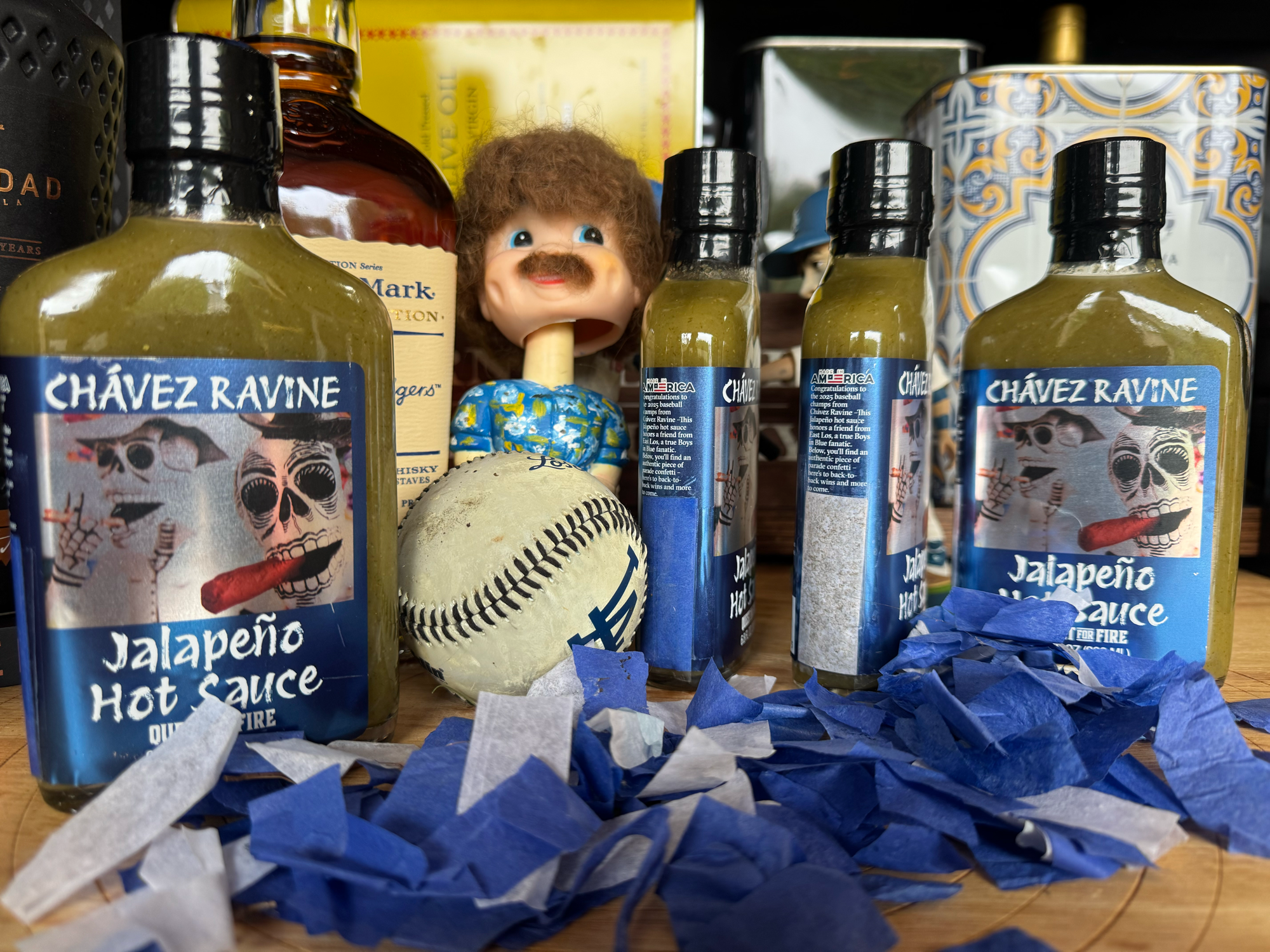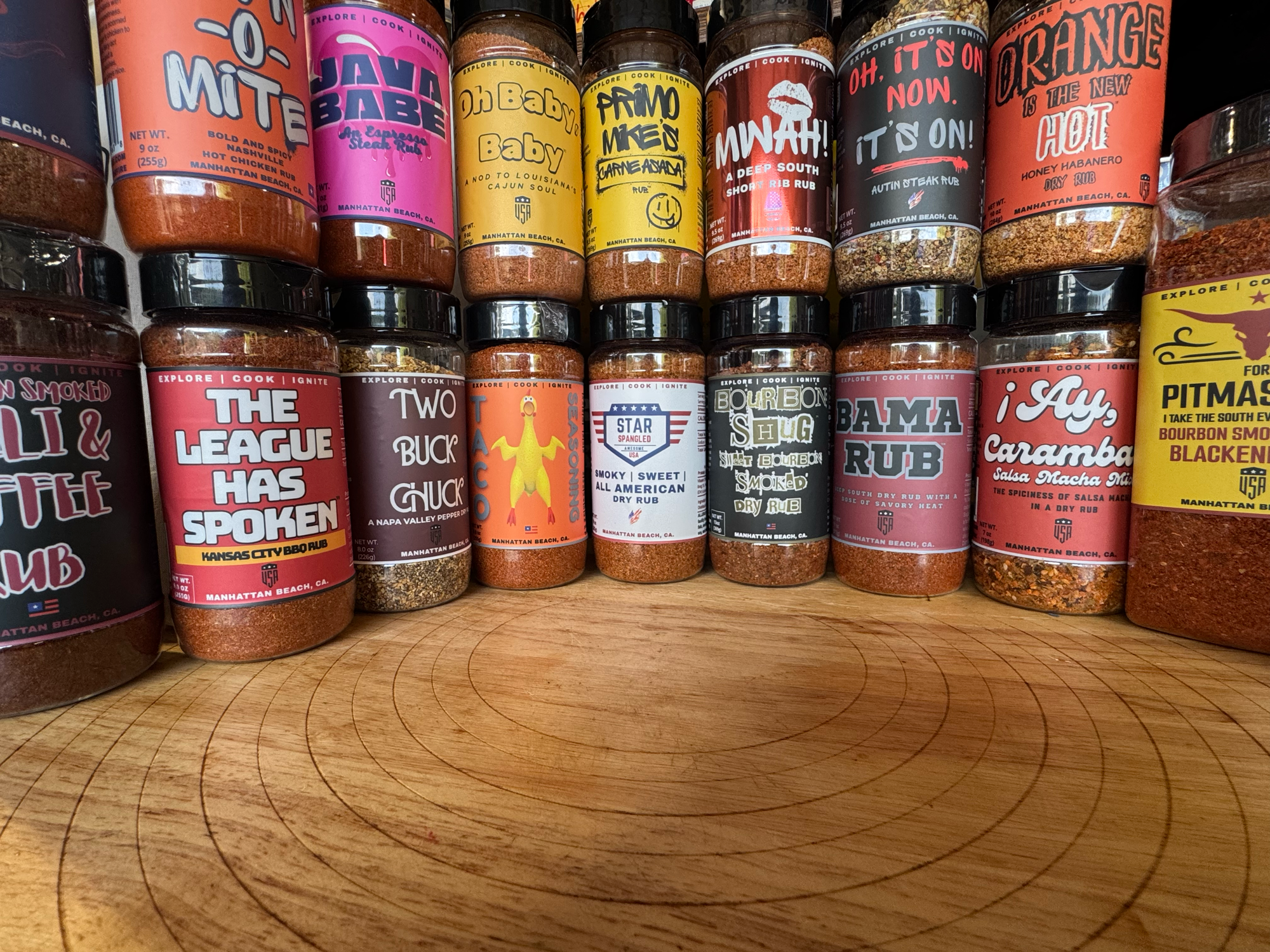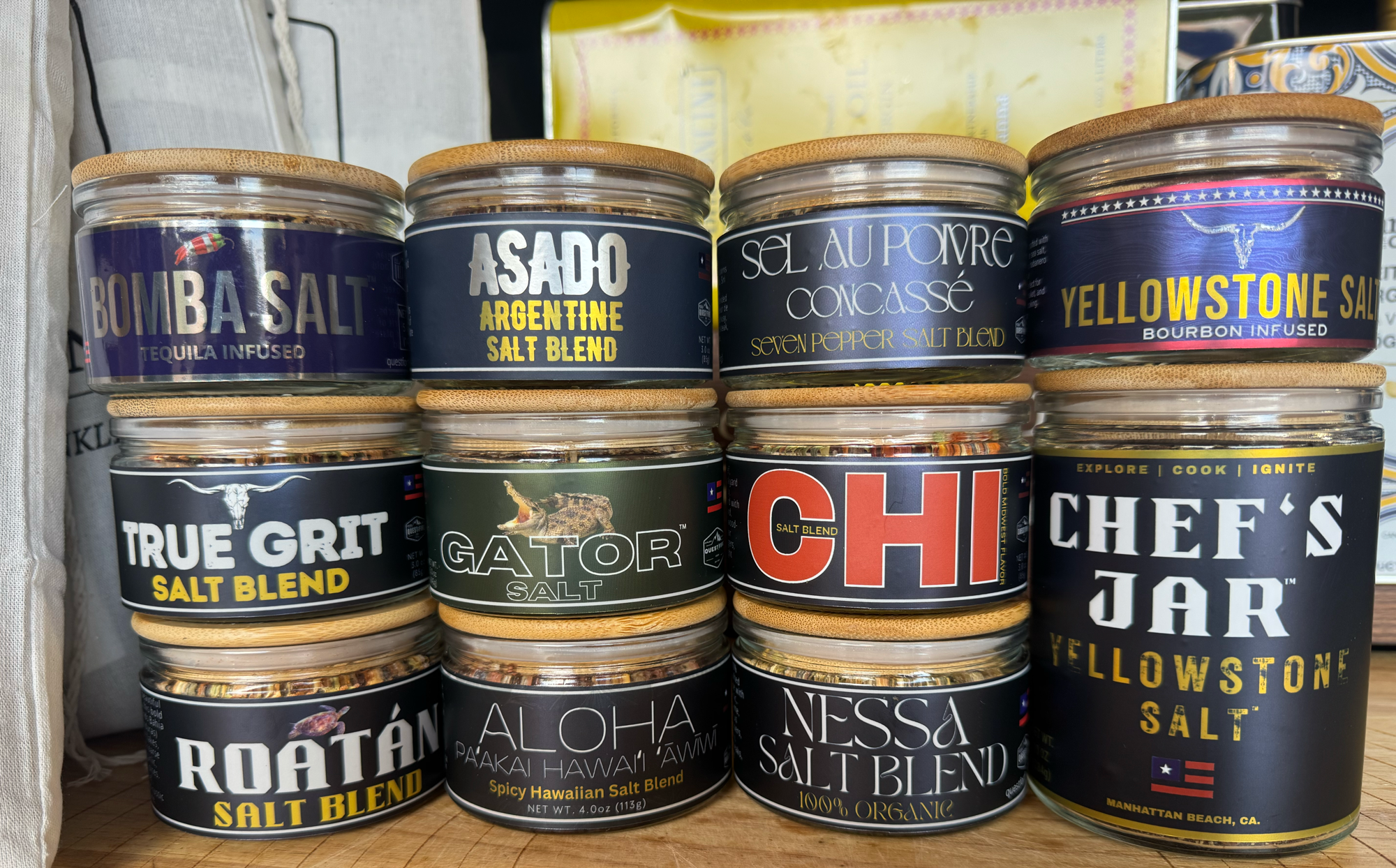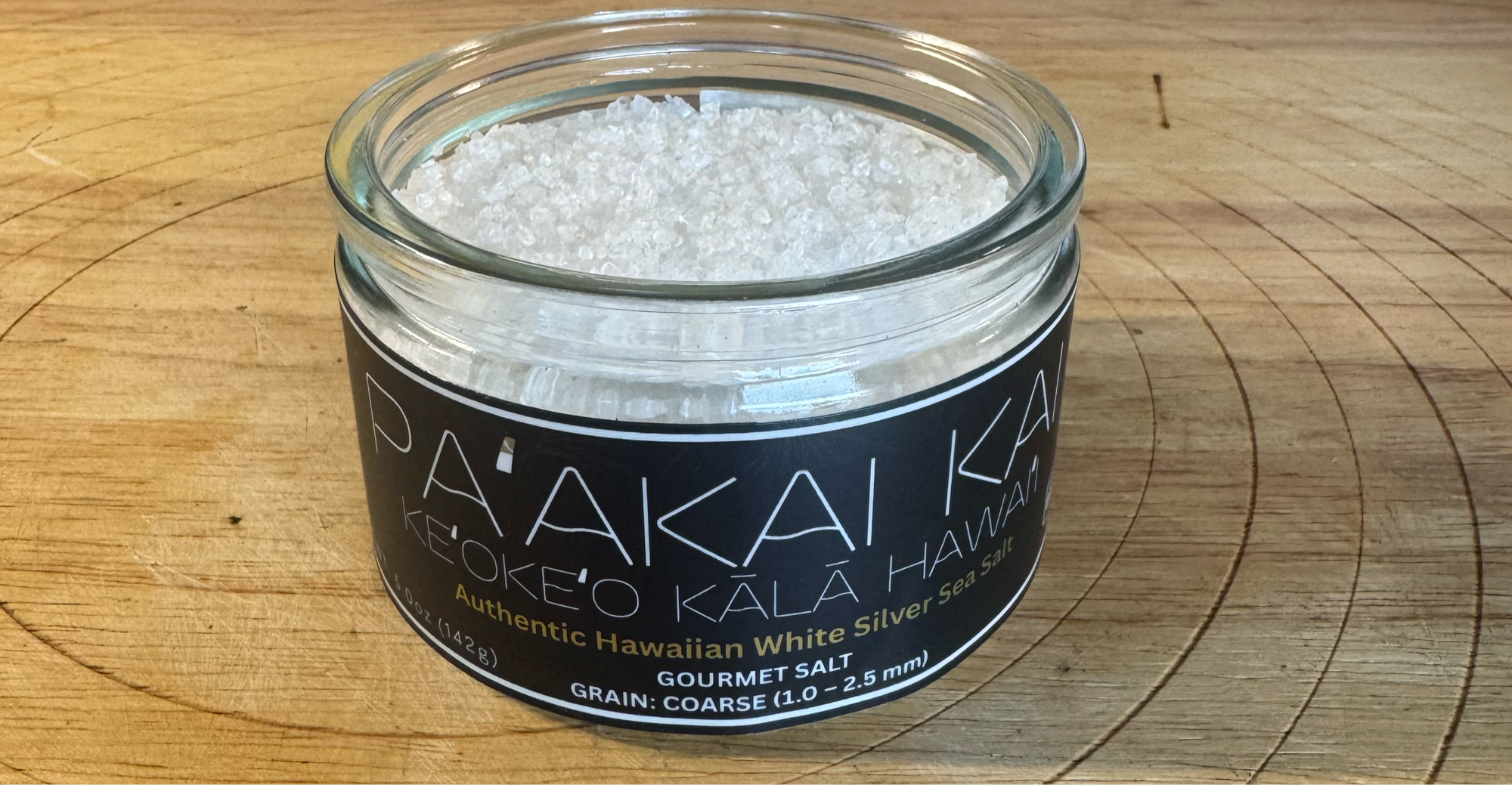The Science of Marinades: How to Infuse Maximum Flavor into Meat
The Science of Marinades: How to Infuse Maximum Flavor into Meat 🔥
Introduction: The Art & Science of Marinades
Marinades are more than just a flavor enhancer—they work at a molecular level to tenderize meat, infuse seasonings, and create mouthwatering results. Whether you're grilling steak, roasting chicken, or preparing seafood, understanding the science behind marinades will help you unlock the full potential of your favorite cuts.
In this guide, we’ll break down:
✅ The key components of marinades (acid, fat, seasoning)
✅ How different ingredients affect meat texture
✅ The best marinades for different types of proteins
✅ Pro tips for maximum flavor infusion
👉 Shop our handcrafted rubs & marinades
🔬 The Three Essential Components of a Marinade
A perfect marinade balances three key elements:
|
Component |
Role in Marinade |
Examples |
|
Acid |
Breaks down proteins, tenderizes meat |
Citrus (lemon, lime, orange), vinegar, yogurt, buttermilk, wine |
|
Fat |
Carries fat-soluble flavors & locks in moisture |
Olive oil, sesame oil, coconut milk, melted butter |
|
Seasonings & Aromatics |
Adds depth & complexity |
Garlic, onions, herbs, spices, honey, mustard, soy sauce |
🔬 Science Tip: The acids in marinades break down collagen and muscle fibers, making the meat softer and helping it absorb more flavors. But too much acid can turn meat mushy, so balance is key!
🥩 How Marinades Work on Different Proteins
Different meats absorb marinades at different rates, and their structure affects how flavors penetrate.
|
Protein |
Best Marinades |
Why? |
|
Beef 🥩 |
Acid-based (citrus, vinegar), bold spices |
Breaks down dense muscle fibers, enhances richness |
|
Chicken 🍗 |
Yogurt, buttermilk, citrus, olive oil |
Keeps it juicy, prevents drying out |
|
Pork 🐖 |
Sweet & tangy (pineapple, brown sugar, mustard) |
Balances natural pork sweetness |
|
Seafood 🦐 |
Light citrus, herb-infused oils |
Delicate structure absorbs flavors quickly |
|
Lamb 🐑 |
Garlic, rosemary, red wine, balsamic vinegar |
Strong flavors complement the bold taste of lamb |
🔬 Science Tip: Tougher meats (like beef and lamb) benefit from longer marination times (4–24 hours), while seafood only needs 15–30 minutes because its fibers break down much faster!
🔥 The Best Marinades for Different Meats
1️⃣ The Perfect Steak Marinade (Bold & Savory)
✔ Best For: Ribeye, Sirloin, Flank, Skirt Steak
✔ Key Ingredients:
-
½ cup Soy Sauce (adds umami & saltiness)
-
¼ cup Olive Oil (locks in moisture)
-
2 tbsp Balsamic Vinegar (acid for tenderization)
-
3 cloves Garlic, minced
-
1 tbsp Brown Sugar (balances acidity)
-
1 tsp Black Pepper & Smoked Paprika
-
Fresh Rosemary & Thyme
👉 Marinate for 4–12 hours for deep flavor.
2️⃣ Ultimate Chicken Marinade (Juicy & Flavorful)
✔ Best For: Chicken breasts, thighs, wings
✔ Key Ingredients:
-
½ cup Greek Yogurt (natural tenderizer)
-
2 tbsp Lemon Juice (bright acidity)
-
2 tbsp Olive Oil
-
1 tbsp Dijon Mustard
-
1 tsp Garlic Powder, Smoked Paprika, Oregano
-
Salt & Pepper to Taste
👉 Marinate for 2–8 hours for maximum juiciness.
3️⃣ Smoky BBQ Pork Marinade (Sweet & Tangy)
✔ Best For: Ribs, chops, pulled pork
✔ Key Ingredients:
-
½ cup Apple Cider Vinegar (tenderizer)
-
¼ cup Brown Sugar (caramelized crust)
-
3 tbsp Soy Sauce (deep umami flavor)
-
2 tbsp Dijon Mustard
-
1 tsp Cayenne & Smoked Paprika
-
Salt & Pepper to Taste
👉 Marinate for 4–12 hours for fall-apart tenderness.
4️⃣ Zesty Shrimp & Fish Marinade (Light & Fresh)
✔ Best For: Shrimp, salmon, snapper, halibut
✔ Key Ingredients:
-
⅓ cup Lime Juice (bright & acidic)
-
2 tbsp Coconut Milk (mild richness)
-
1 tbsp Honey (balances acidity)
-
1 tsp Chili Flakes & Garlic Powder
-
Salt & Pepper to Taste
👉 Marinate for just 15–30 minutes to avoid breaking down delicate proteins.
💡 Pro Tips for Marinating Like a Pro
✅ Don’t Over-Marinate: Overexposure to acids can turn meat mushy (especially seafood).
✅ Use the Right Container: Always marinate in glass or stainless steel (avoid aluminum, which reacts with acids).
✅ Pat Dry Before Cooking: Remove excess marinade before grilling to achieve a proper sear.
✅ Never Reuse Marinade: Used marinade contains raw meat juices—boil it before using as a sauce.
✅ Match Marinades with Cooking Methods:
✔ High-Heat Grilling: Soy-based, sugar-heavy marinades caramelize beautifully.
✔ Slow Roasting: Wine or vinegar-based marinades add deep, complex flavors.
✔ Pan-Searing: Lighter, oil-based marinades enhance tenderness without burning.
🔥 Frequently Asked Questions (FAQs)
1️⃣ How long should I marinate meat?
-
Beef & Lamb: 4–24 hours
-
Chicken & Pork: 2–12 hours
-
Seafood & Shrimp: 15–30 minutes
2️⃣ Can I marinate overnight?
Yes, but not all meats benefit from long marination times—chicken, pork, and steak are great for overnight marination, but seafood will become too soft if left too long.
3️⃣ Can I freeze marinated meat?
Absolutely! Freeze meat in its marinade for easy meal prep. Just thaw & cook directly for full-flavored results.
🔥 Ready to Elevate Your Cooking? Shop Our Marinades & Spice Blends!
From smoky BBQ to fiery habanero marinades, we have handcrafted blends designed to bring out the best flavors in every meat.
🛒 Shop Marinades & Rubs Now
Keywords
✔ How to marinate meat
✔ Best marinade for steak
✔ How long to marinate chicken
✔ Best marinades for grilling
✔ The science of marinades
✔ BBQ marinade recipes
✔ Marinades vs dry rubs
✔ Acid-based marinades
✔ How to make tender meat
✔ Best marinade ingredients




